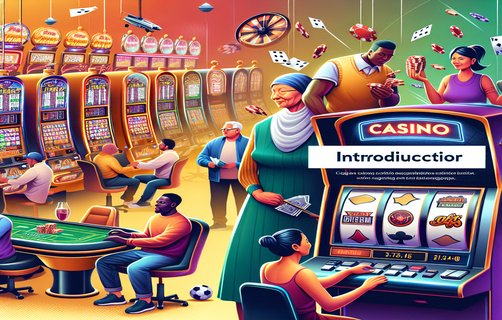Analyzing Trends in Gaming: From Traditional Poker to Emerging Markets
The gaming landscape has continuously evolved, with various formats and technologies shaping the way players engage with their favorite pastime. The game of Seven-Card Stud exemplifies the traditional poker experience, offering depth and strategy reminiscent of its historical roots. In this analysis, we explore various interconnected aspects of the gaming world, including the impact of regulatory frameworks like GamStop, innovations from developers such as Play’n GO, the consequences of casino closures, and the growing allure of fantasy sports betting.

Seven-Card Stud has remained a staple in poker gaming, inviting players to engage in a game that requires keen observation and strategic thinking. Unlike more ubiquitous variations like Texas Hold’em, Seven-Card Stud challenges players with its unique rules; each player is dealt seven cards, of which only five will ultimately form their hand. This results in a game enriched by information asymmetry, where players must meticulously deduce their opponents’ holdings based on visible cards. Mastering this game necessitates a deep understanding of probabilities and player tendencies, which can be invaluable for seasoned gamblers seeking an edge.
As the online gaming sector expands, regulatory measures like GamStop play a crucial role in maintaining responsible gaming practices. GamStop is a self-exclusion program allowing players to take a break from online gambling by voluntarily excluding themselves from sites connected to the program. This initiative reflects a growing commitment to player safety, ensuring that individuals can easily opt out when they feel their relationships with gambling might become harmful. By prioritizing responsible gambling, industries can foster a healthier atmosphere for players while mitigating risks associated with addictive behaviors.

In contrast to traditional card games, software providers like Play’n GO have revolutionized the digital casino experience with their innovative approach to game design. By developing engaging and immersive gaming experiences, Play’n GO utilizes cutting-edge graphics and engaging storylines that captivate players’ attention. These innovations not only attract casual gamers but also promise improved user retention through high replay value and community engagement features. This model has proved especially effective in online casinos, where the user interface’s loading times can dictate player satisfaction and retention rates.
Casino closures remain a pressing concern for both players and operators. The COVID-19 pandemic significantly impacted brick-and-mortar establishments, forcing prolonged shutdowns and drastically affecting revenue generation. As casinos adapt to the new normal, embracing digital transformation through online gaming platforms has become essential for survival. Ready access to online gambling alternatives will likely continue even as physical venues reopen, necessitating a blend of both experiences to cater to diverse consumer preferences.
The growth of fantasy sports betting epitomizes a new era in gambling. Fantasy sports platforms allow players to create virtual teams based on real athletes, offering a sense of ownership and engagement beyond traditional betting. The advent of this model has attracted a younger demographic that thrives on competition and skill rather than chance, further diversifying the gaming landscape. This shift signals a future where fantasy sports may blend seamlessly with established gambling practices, perhaps allowing players to even bet on the outcomes of their fantasy line-ups.
Ultimately, with traditional games like Seven-Card Stud remaining relevant and new technologies reshaping the gaming world, the industry is primed for continuous evolution. Players are presented with opportunities to engage, compete, and enjoy their gaming experiences in varied contexts, underscoring the need for operators to adapt swiftly to meet emerging demands.
